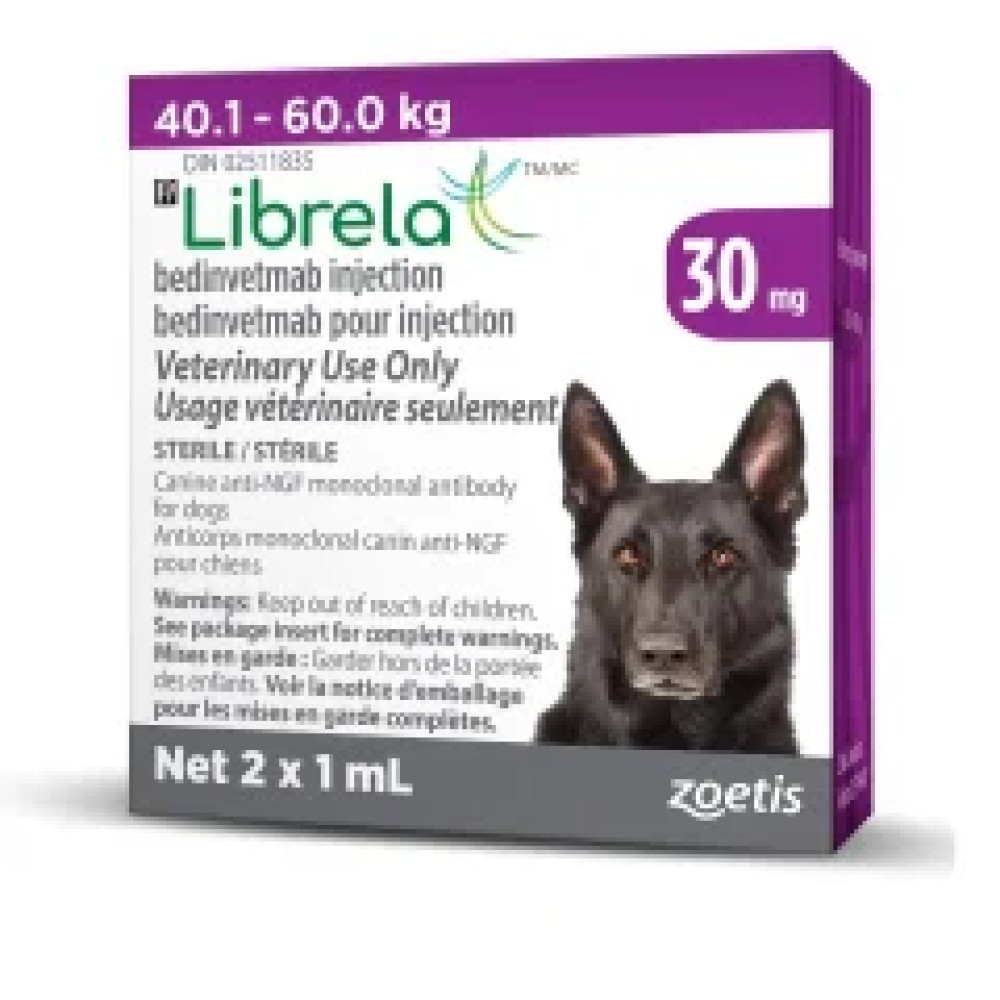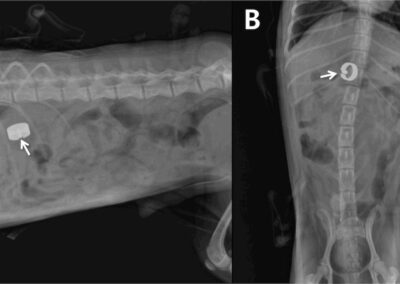What is Arthritis?
Arthritis is the most common cause of chronic pain in dogs. Many times it is described in older dogs but in reality it can occur in a dog of any age (~80% of dogs over 8 years of age and ~35% of dogs of all ages). Arthritis is considered a welfare issue in companion animals, especially if left untreated. What do I mean when I say animal welfare? There are many different definitions that have been proposed but very broadly we want to determine how an individual animal is coping, both mentally and physically, at a certain point in time (physical, psychological, social and environmental).
The definition of arthritis is simply “inflammation of the joints”, but this does not do this disease process justice- it is much more complex than this definition leads us to believe. Arthritis affects all structures of the joint and if not treated can lead to complete failure of the joint. What happens to the pet is that there is deterioration of normal structures, this causes pain and reduced use of the joint, surrounding muscles/ ligaments/ and tendons become weak, the pet often compensates elsewhere which causes more pain, the brain becomes increasingly aware of daily pain and amplifies the pain messaging system to restrict pain activity further.
What Can We Do?
Since arthritis is very complex so is treatment. Treatment should be a plan that is created specifically for your pet and should be a fluid and evolving plan. All care takers and the veterinary team are decision makers in the process. It is also important to regularly monitor your pet so you and your veterinarian can be confident that your plan is working and when therapy may need to be changed. There are very few validated pain scales for chronic pain but a really good easy one is the canine brief pain inventory. Personally, I like baseline scores, another evaluation once treatment should reach peak effect, two weeks after peak effect of treatment, then at least monthly long term. If numbers are stable I do not need each month reported to the office but if scores start to get worse or there is a new problem I would like to re-evaluate the pet. I have said before that treatment for arthritis should be more than just medication so we will not do a deep dive in all the aspects of management again in this blog.
The new kid on the block is a monoclonal antibody developed by Zoetis called Librela. This is not the first monoclonal antibody this company has developed, you may be familiar with Cytopoint which is a monoclonal antibody use to treat atopic dermatitis in dogs.
This product has been FDA approved in the USA since 2016 and has since proven its value and the potential for use of monoclonal antibodies in medicine since. Librela was granted FDA approval in the USA in May of 2023 and became commercially available in the fall of 2023.
Monoclonal antibodies are laboratory produced antibodies that serve to mimic the body’s immune system attack on unwanted cells. Librela targets nerve growth factor (NGF) which is a protein that regulated growth, development, and maintain of sympathetic and embryonic sensory neurons. This is very important in development and growth and these functions should be protected. This is why this treatment should not be used in young, growing, or pregnant/ lactating females. When a pet has arthritis NGF increases the release of inflammatory mediators and NGF itself. This leads to what is known as sensitization and dramatic worsening of chronic pain. The antibody binds NGF deactivating it.
Librela is a monthly injection and can be used as a single treatment or part of a multimodal treatment depending on the severity of your pets disease. There are very few reported side effect which is excellent and can be used in pets with concurrent disease. A majority of the owner have reported to me that within a week of starting the medication they noticed an improvement but in a small population of patients improvement is noted at around the 6 week mark, so after the second injection.
I am so excited to have this part of my tool kit to treat arthritis and if you have any concerns about your pet or you are telling yourself “they are just slowing down” I would encourage you to talk to your veterinarian about trying to diagnose arthritis.


 Barks & Recreation is proud to feature Dr. Eileen Savier CVA, CVCH as our Veterinary Blogger in our “From the Vet” Series — offering information related to the health and welfare of your furry family members! Currently part of the team of doctors at Keystone Veterinary Clinic, Dr. Savier is a 2012 Graduate of the Ross University School of Veterinary Medicine, She completed her clinical experience at The Ohio State University and after veterinary school she pursued further education and certification in Veterinary Acupuncture, Chinese Herbal Medicine, and Fear Free veterinary visits. Dr. Savier has a special interest in integrative medicine, animal behavior, and internal medicine and is committed to improving animal health care by integrating Eastern and Western philosophies. She enjoys working with fearful & aggressive dogs and cats and she has had additional training in low stress handling techniques and encourages positive reinforcement during exams and procedures. Her clinical interests include pain management, animal behavior, geriatric patient care, and internal medicine.
Barks & Recreation is proud to feature Dr. Eileen Savier CVA, CVCH as our Veterinary Blogger in our “From the Vet” Series — offering information related to the health and welfare of your furry family members! Currently part of the team of doctors at Keystone Veterinary Clinic, Dr. Savier is a 2012 Graduate of the Ross University School of Veterinary Medicine, She completed her clinical experience at The Ohio State University and after veterinary school she pursued further education and certification in Veterinary Acupuncture, Chinese Herbal Medicine, and Fear Free veterinary visits. Dr. Savier has a special interest in integrative medicine, animal behavior, and internal medicine and is committed to improving animal health care by integrating Eastern and Western philosophies. She enjoys working with fearful & aggressive dogs and cats and she has had additional training in low stress handling techniques and encourages positive reinforcement during exams and procedures. Her clinical interests include pain management, animal behavior, geriatric patient care, and internal medicine. Dr. Savier shares her home with two (soon to be three) dogs, two cats, and a toddler. She lovingly refers to her two dogs as Coconut Retrievers as they were rescue dogs she brought home from the island of St. Kitts. In her free time she enjoys spending time with her family, going to the beach, and planning her next Disney vacation.
Dr. Savier shares her home with two (soon to be three) dogs, two cats, and a toddler. She lovingly refers to her two dogs as Coconut Retrievers as they were rescue dogs she brought home from the island of St. Kitts. In her free time she enjoys spending time with her family, going to the beach, and planning her next Disney vacation.




